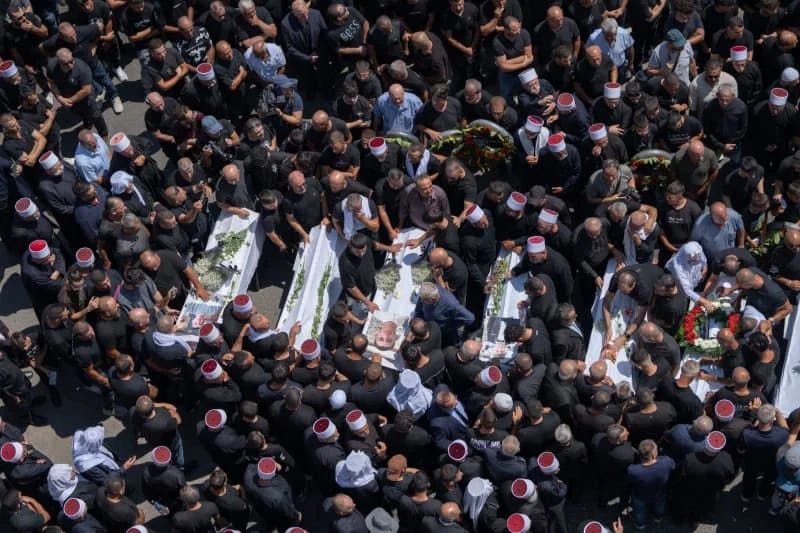Iran-Hezbollah: Cooler Heads... at least for now
It looks like we've avoided a full-blown escalation for the time being.
The scene of the funeral for the 12 children killed in Majd Shams on Saturday. Image source
Cooler appear to be prevailing in the ongoing conflict between Israel and Lebanon-based terror group Hezbollah – at least for now. Although top Israeli leaders vowed revenge for the July 27 attack on Majdal Shams, four anonymous Israeli officials recently told Reuters that their government is working to avoid a major escalation. "The estimation is that the response will not lead to an all-out war…That would not be in our interest at this point," said one diplomatic source. On Monday, Israeli drones struck a remote road in southern Lebanon as tensions between Israel and Hezbollah continue to mount.
The death toll from Saturday’s rocket attack has risen to 12 people – all of them Druze children between the ages of 10 and 16 years-old. Hezbollah continues to deny involvement; however, images of shrapnel from the attack recently released by the IDF appear to confirm that the rocket used was an Iranian-made Falaq-1. Although Iran-aligned media outlets speculate that the attack was carried out using an Israeli iron dome interceptor, Ryan McBeth and others have released analysis dispelling this notion, based on the explosion on impact.
For now, the situation remains at or near the status-quo with tensions continuing to mount by the day. The fact that Israel has not entered into a full-scale conflict with Hezbollah speaks to two factors:
That the prospect of a war with Hezbollah and potentially Iran is extremely dangerous for Israeli security and potentially that of other regional and international partners
The two sides may be working toward some negotiated settlement behind the scenes.
The first factor is clear, the second is purely speculative on my part. However, recent shifts in Iranian politics, ongoing dialogue between Israel and Washington, and the fatigue of a drawn out conflict could signal positive shifts in this regard. However, these negotiations will require compromises on both sides and such a willingness to do so remains far from clear.
On Wednesday, I’ll put out my analysis on the current situation in Iran.



